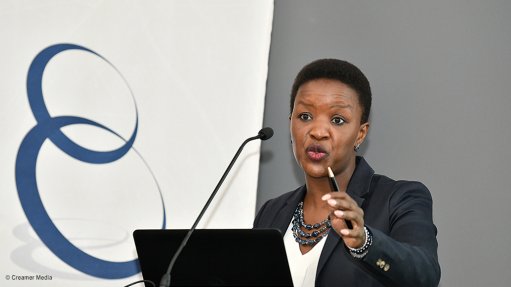Donald Trump’s gratuitous slur
A few weeks ago, US President Donald Trump was at it once again, using vulgar language to disparage the home countries of African, Haitian and El Salvadorian immigrants.
As is his wont, he subsequently denied ever uttering the offensive remarks. Last week, he issued a statement full of praise for Africa as the continent’s heads of State and government gathered in Addis Ababa, the Ethiopian capital, for the thirtieth African Union (AU) summit. Earlier, at the World Economic Forum meeting in Davos, Switzerland, he had met with Rwandan President Paul Kagame, during which he congratulated him on his imminent assumption of the chairpersonship of the AU.
I take Trump’s genuineness with a gigantic pinch of salt. Here is a man who once tweeted, following the announcement by former President Barrack Obama of a generous US development aid package for our continent, that “every penny of the $7-billion going to Africa as per Obama will be stolen – corruption is rampant”. I am sure he had this in mind when he decided to call us names last month.
I would be the first to admit that corruption – in both the private and public sectors – has been the bane of development in Africa. According to United Nations and AU estimates, about $148-billion is embezzled each year in Africa by politicians, civil servants and business executives. Corruption often results in public money being spent on white-elephant projects instead of developing social infrastructure like schools and health facilities and tackling the continent’s massive economic infrastructure deficit, believed to be about $75-billion a year.
But what the likes of Trump conveniently forget is that Africa does not have a monopoly on corruption. Barely a year ago, former South Korean President Park Geun-hye was impeached over a corruption and cronyism scandal in which she conspired with a close associate to pressure companies that included electronics giant Samsung to donate large sums of money to nongovernmental organisations (NGOs) established by the associate.
The same scandal claimed a major business scalp in August 2017 when Samsung heir and acting chairperson Lee Jae-yong was jailed for five years. This followed his conviction on a charge of receiving political favours in return for his so-called donations to the bogus NGOs.
Trump should not pretend that he does not know of the early-2000s monumental scandal at US energy company Enron Corporation, where executives – through accounting loopholes and special-purpose entities, besides other means – masked billions of dollars in debt from failed deals and projects. Eventually, Enron folded, becoming the biggest bankruptcy case in US corporate history. A variety of charges were brought against many of its senior managers, some of whom were subsequently jailed, while its audit firm, Arthur Andersen, was effectively closed down. The company’s employees and shareholders lost billions of dollars in pensions and equity holdings. This scandal did not happen on African soil, but right in Trump’s backyard.
Of course, as Pretoria-based Institute of Security Studies consultant Liesl Louw-Vaudran points out, the effects of corruption in Africa are amplified by the fact that the money that is syphoned off State and corporate coffers is spirited out of the continent, whereas, in other regions, the proceeds of graft are reinvested in the economy, thus still fuelling growth. The list of corrupt African leaders who stashed their ill- gotten wealth in Europe, the US and the Gulf States is very long. In a paper published in the International Journal of Economics, Commerce and Management, Berlin School of Economics and Law academic Oladayo Nathaniel Awojobi argues that this would not be possible without the complicity of Western financial institutions. One hopes Trump considers this before he mouths off again.
In case the US President and his ilk are not aware, Africans are taking action to combat corruption. The AU has designated 2018 the African anticorruption year, and corruption, along with trade and security, topped the agenda of last week’s summit. What’s more, 37 of the AU’s 55 member countries have ratified its Convention on Preventing and Combating Corruption, which came into force in 2006.
Article Enquiry
Email Article
Save Article
Feedback
To advertise email advertising@creamermedia.co.za or click here
Comments
Announcements
What's On
Subscribe to improve your user experience...
Option 1 (equivalent of R125 a month):
Receive a weekly copy of Creamer Media's Engineering News & Mining Weekly magazine
(print copy for those in South Africa and e-magazine for those outside of South Africa)
Receive daily email newsletters
Access to full search results
Access archive of magazine back copies
Access to Projects in Progress
Access to ONE Research Report of your choice in PDF format
Option 2 (equivalent of R375 a month):
All benefits from Option 1
PLUS
Access to Creamer Media's Research Channel Africa for ALL Research Reports, in PDF format, on various industrial and mining sectors
including Electricity; Water; Energy Transition; Hydrogen; Roads, Rail and Ports; Coal; Gold; Platinum; Battery Metals; etc.
Already a subscriber?
Forgotten your password?
Receive weekly copy of Creamer Media's Engineering News & Mining Weekly magazine (print copy for those in South Africa and e-magazine for those outside of South Africa)
➕
Recieve daily email newsletters
➕
Access to full search results
➕
Access archive of magazine back copies
➕
Access to Projects in Progress
➕
Access to ONE Research Report of your choice in PDF format
RESEARCH CHANNEL AFRICA
R4500 (equivalent of R375 a month)
SUBSCRIBEAll benefits from Option 1
➕
Access to Creamer Media's Research Channel Africa for ALL Research Reports on various industrial and mining sectors, in PDF format, including on:
Electricity
➕
Water
➕
Energy Transition
➕
Hydrogen
➕
Roads, Rail and Ports
➕
Coal
➕
Gold
➕
Platinum
➕
Battery Metals
➕
etc.
Receive all benefits from Option 1 or Option 2 delivered to numerous people at your company
➕
Multiple User names and Passwords for simultaneous log-ins
➕
Intranet integration access to all in your organisation

















